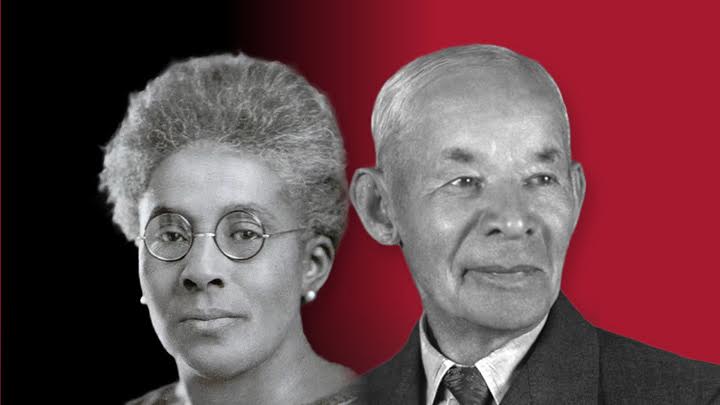Gus & Emma Thompson: A Treasure for San Diego
SDSU’s Black Resource Center will be named for the couple during a Sept. 16 dedication and ribbon-cutting ceremony.

In March, San Diego State University announced a $5 million gift to the university’s Black Resource Center from brothers Ron and Lloyd Dong, Jr. and their spouses, Janice and Girina. The gift, the family said, was made as a tribute to Gus and Emma Thompson, a Black couple who, in the late 1930s, rented and eventually sold to the Dongs’ parents the Coronado house in which the brothers grew up.
On Sept. 16, a dedication and ribbon-cutting ceremony will name the Center for the Thompsons.
The Dongs’ heritage is Chinese and in their parents’ day, people of color faced difficulty renting or buying property in Coronado. The Thompsons’ gesture was exceptional.
But who were the Thompsons?
According to Kevin Ashley, a researcher who specializes in the African American history of Coronado, both Gus and Emma were self-made entrepreneurs who became an early power couple in the area’s Black community where, he said, “they fought for what was right.”
Earlier this year, Ashley put together an exhibit for the Coronado Historical Association tracing the island’s African American community back through 1885. The Thompsons were among the families featured.
Ashley’s research revealed Gustavus A. Thompson was born into slavery in Kentucky in 1859. He was working as a coach driver in Henderson during 1885 when he met E.S. Babcock, a founder of the Hotel del Coronado, who was visiting Thompson’s wealthy employer on a fundraising mission for the hotel.
In 1886, Thompson joined a Black group and followed Babcock to Coronado where he was hired as Babcock’s coach driver and carried the first guests to the Hotel del Coronado when it opened in January 1888. Thompson and Babcock remained associates for over 30 years.
Emma Gardner was born in Texas in 1869 and arrived in San Diego in 1885 in the company of an Illinois family she worked for as a domestic servant. She married Gus in 1893 and in 1899 the couple purchased two Coronado lots where they built a livery stable and a house in which they raised three children. By 1902, Gus was running a successful livery stable and transport business while Emma ran a coffee shop in Coronado’s Tent City.
The Thompsons’ three children were Walter, a World War I hero who served in France; Edythe, who married Black tennis champion Ballinger Kemp and worked in Hollywood as a personal assistant for screen star Bette Davis; and Edward, the youngest, who would become Southern California’s first Black college football star.
“They were just an incredible family,” successful by any measure,” Ashley said. He described the Thompsons as elite, but humble.
“They were wealthy and had achieved a lot, but they didn't forget where they came from. They were always trying to uplift others.”
On the move
When the children were grown, the couple moved into the living quarters above the livery stable and rented their family home to immigrants. The Dong family rented the house from the Thompsons from 1939 until 1955, when Emma sold it to them. Throughout that time the livery stable living quarters served as a boardinghouse for African Americans who were often denied lodging elsewhere in Coronado.
With a reputation as a successful businessman, Gus also cofounded Fidelity Lodge in 1903, San Diego’s first Black Prince Hall Freemason Lodge, which remains active today. The Gustavus A. Thompson Lodge in Lemon Grove is named for him.
Emma became involved in Bethel AME, San Diego’s first African American church, and was a community organizer and activist her entire life. Her causes included fights for a YWCA facility that would admit African American girls, and for the passage of a Federal anti-lynching law. “You can't deny the power of Emma Thompson as an entrepreneur, community leader, and political activist. Her stature was equal to Gus’s,” Ashley said.
Through the Dong family’s generous gift, the Thompsons’ legacy will continue. SDSU’s Gus and Emma Thompson Black Resource Center will be able to expand academic programs, provide additional mentors, expand mental health programming, provide additional resources to support students’ basic needs, upgrade facilities, and much more.
Moreover, the example set by the Thompsons will serve to motivate students who will become San Diego’s future leaders. “Every student who comes through the BRC will know this story,” said Tonika Green, SDSU associate vice president for Campus Community Affairs and Department of Counseling and School Psychology professor. “There are so many ways it can inspire people.”
Ashley agreed. He said the Thompsons were a pioneering San Diego family who deserve to be acknowledged as such.
“They represented the best of us all,” he said of Gus and Emma. “They saw humanity in everybody. I think they were a treasure for San Diego and the fact they’re being recognized is incredible.”



